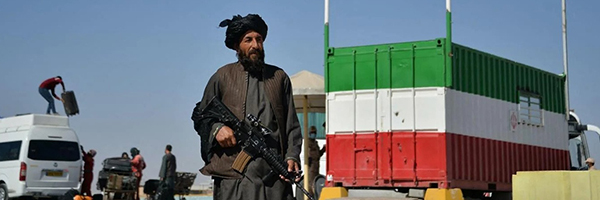 The Cradle, November 6, 2022 — Afghanistan’s reliance on Pakistan to import most of its sellable goods puts it under pressure to avoid angering the leadership in Islamabad.
The Cradle, November 6, 2022 — Afghanistan’s reliance on Pakistan to import most of its sellable goods puts it under pressure to avoid angering the leadership in Islamabad.
In a statement on 5 November, the Minister of Commerce and Industries in the transitional Islamic Emirate of Afghanistan (IEA) government, Nuruddin Azizi, announced that Iran and Afghanistan will conclude a trade deal “very soon.”
Azizi stated that Tehran agreed to sign an agreement that would facilitate the import of coal from Afghanistan and increase efforts to “balance the trade between the two countries.”
“Coal exports have increased due to the provision of opportunities for businessmen. Taxes have also been increased to raise revenue,” said Ahmad Wali Haqmal, the spokesman of the Taliban’s Ministry of Finance.
Haqmal added that Afghanistan earned $32 million from coal imports, with at least $14 million made in the last 6 months. Under the current economic situation, coal is one of Afghanistan’s main focuses for generating revenue.
According to World Meters, Afghanistan has an estimated 73 million tons of proven coal reserves with a capacity to produce 1.8 million yearly.
Earlier on 23 June, clashes reignited between the IEA and local militiamen associated with Mawlawi Mehdi Mujahid – the only Shia Hazara commander in the ranks of the Taliban – in Balkhab, Sar-e Pol province.
Reportedly, the dispute was over the revenue generated by the coal mines in Balkhab, which Mehdi used to invest in strengthening his leadership at the expense of the central command in Kabul.
Mehdi and the IEA fought over an estimated revenue of hundreds of thousands of dollars, as Afghanistan’s coal exports to Pakistan rose to several hundred million dollars.
Voice of America (VOA) reports that Pakistan imports $550 million to $700 of coal and cotton goods from Afghanistan per year, making it the country’s top importer and economic partner.
Nonetheless, recent tension in the relationship between the IEA and Pakistan has forced the Taliban’s leaders to diversify their markets in order to avoid potential boycotts, in the event of any political disagreements.
On 28 August, the Minister of Defense in the Taliban-controlled government, Mawlavi Mohammad Yaqoob, accused the US of breaching Afghanistan’s sovereignty, and Pakistan of facilitating the aggression.
In a rare public attack on Pakistan, Yaqoob called on Pakistan to end its facilitation of the UAVs’ access to the country’s airspace and stop its cooperation with the US military.
